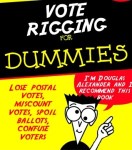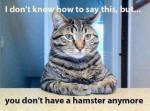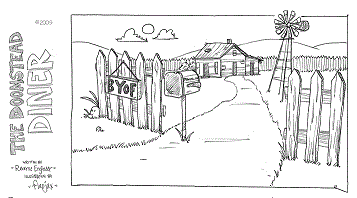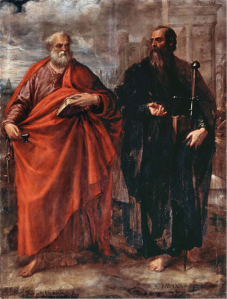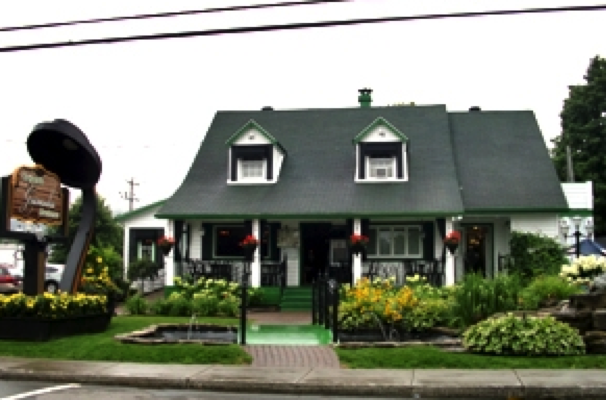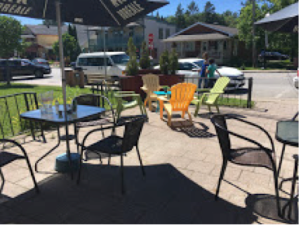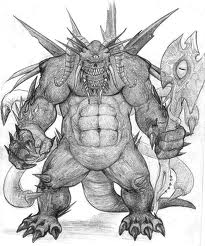How Britain’s inner city young are being failed
SHAUN BAILEY
I AM SHAUN BAILEY. I come from a black working class environment. I was born and brought up by my single mother on the North Kensington Estates.
Where I live, the peer pressure to offend surrounds you. Crime is everywhere. 1 Education on the estates is not an issue. The teenage pregnancy rate is well above the national average. There is a teenage drugs epidemic. There are significant mental health and disability issues. 2 There is little mobility out of the area. 3 The number of people in contact with social services is way above the national average.
Yet just a few yards away on the other side of Ladbroke Grove, you can find houses worth millions of pounds where bankers, celebrities and media stars discuss being attacked and the threat of burglary rather than the problems of today’s youth.
I am one of the lucky ones. That I escaped my destiny I put down to three things: being part of a close-knit family; having a determined mother; and being enrolled with the Army Cadet Force (ACF) when I was 12 years old.
I had a role model in my uncle who when my dad wasn’t around made a deliberate attempt to replace him in many of the fathering things. That was important to me. When everybody else was trying to grow up quickly and act like a man, my uncle disallowed it. His being there meant I was able to be a child, to be interested in toys. This separated me from my peer group. One of my mum’s proudest boasts about me was that I never brought the police to her house.
I also got to know my father when he came back to support us and that’s a rarity in this area.
Breaking the culture of dependency
A culture of dependency rules the working class. The first wave of migrants from the West Indies never had this, they fended for themselves.
My mum knew that she couldn’t cope with me and my brother when we were teenagers. But unlike other people she never acted as if it was society’s fault. There was a four year gap with my brother – so she concentrated on me as the eldest. She decided to keep me busy. Every day she had me organised – I did karate for a week, I did football for a week and my mum made me go, she encouraged me to go to stretch myself. Then she found me a gymnastics place, an independent club that had been going for 35 years. It was a long-term activity for me that was important in linking me to the wider society.
My peer group on the estate: they had no link to the wider society at all.
She also made sure that I never went to a school in our locality – she didn’t want me to be too friendly with the boys here. A deliberate ploy not to leave me among too many black children. She had seen how black people interact with black people – what they say to other black people – that means you can’t go forward. That you get trapped in your own poor community.
I wasn’t very good in school. I hated school and school hated me, I wasn’t the best behaved in school – I was suspended a few times. The problem for me was that I developed very slowly academically. I was quite far behind. I remember being quite low down the sets and stuff. I got close to the point that school was failing me. But I became a member of the Army Cadet Force (ACF). That really rescued me.
The son of one of my mum’s close-knit family members had joined the ACF. He encouraged me to go too. I cannot exaggerate the effect it had on me. I was 12 at the time. Going into the cadets created the person I am today. Straight away I had a different version of how men were. I had so much more moral guidance – not stealing but supporting people – than anyone I knew. None of them were told there is always a consequence of behaviour – good or bad. I was. It was a crossroads thing: when everybody I knew was offending and doing bad stuff, I was literally too busy. I could easily have gone along when my friends decided to burgle a factory one weekend but I was busy. I said, “I am going away to camp for the weekend, I can’t do it”. They all got in trouble and I wasn’t even there – I was running up and down Salisbury Plain, training.
As I went through school I knew there was a definite difference between me and most of my friends. When the whole smoking and carrying knives thing came about I could have been one of them. I was physically big and I was part of the cool set. I was unique in that I was cool but I wasn’t having to be carrying out the crime to be seen that way. What it was, Army Cadets had made me confident.
I saw their view of what is possible. For the people on my estates these were things that were not seen as possible at all. My connection with the army cadets gave me an understanding of Britishness and that made my life much easier. I felt much less separated. I didn’t feel the whole racism thing.
I had role models who were men and who were not of the street. They came from good backgrounds and they introduced me to a British outlook on life, like the value put on the family.
They had a traditional, positive outlook. They had seen what works for them and they tried to continue it. It helped me see the similarities with the original Jamaican community. With the ACF I learnt there were many things about being British that are positive – I realised then that those values have been eroded in the poorer classes.
My mother forced me to go to Paddington College to do the CPVE. She said don’t you think you are leaving school and not doing anything. That was not an option. I just scraped into college. Everybody wanted to be there – or at least had to be there – and that again changed my view. I went into BTech and I just battled through it. With my A Levels and my BTech I was just able to scrape into university – the whole grant thing made that possible though it would definitely have benefited me and my mum if I had left and got a job. That would have made life much easier.
Again I come back to Cadets – they gave me the ability to soldier on. To the cadets you are a worthwhile person. Obviously you should be doing something. I had one officer who had expectations of me. He was called Captain Connelly. He’s a Colonel now. He really believed in me and he was just like, “so when are you going to be doing this and when are we going to be doing that?” He really kept on and on. It got to the point that I went to interviews thinking, this is just so he’ll keep quiet. I would see him two or three times a week at Cadets so I had to do something. It got me through some difficult times.
By the time I was 20 or 21, heaps of my friends had been in jail. Almost all of them had some kind of drug issue – friends from my estate and from my school and college – but they were not aware of it being a problem. Some weren’t actually taking them but selling them. That was one of the big issues. I could see the attraction but by that time I had developed an aversion to crime. When you are young and you get into the stealing of bikes for a laugh, vandalism and stuff, you develop a criminal mentality –once you get it as a child, it is difficult to stay away, crime becomes an opportunity you can’t resist. Luckily I had missed all of that.
After university (Computer Engineering at the South Bank University) which I had to work at a job all the way through to the detriment of my grades, and after some soul-destroying jobs, I began to work here. On the estates. First with Barran Hulme, an inspirational youth worker who came from Scotland but lived on the estate running a local Detached Youth Project. It was based on connecting with young people and he believed I could do that. All youth work is based on personality, he said. If you don’t have the personality, you can’t connect with the people. He couldn’t afford to pay me. Youth projects are not funded properly. But he said, “Become a volunteer”. So I did that. That was seven years ago. And that was when I bumped into Timmy again, one of the boys I grew up with.
Case study: Timmy The Heroin Addict
I hadn’t seen Timmy for years when up he popped on the estate, now 28 years old and in a terrible state. He had a really bad drug problem and was sick of going to jail. He came onto our project because he knew me.
He had been a school friend. His mother was alone and that meant Timmy was alone – all the time she was busy supporting herself and older siblings as well. He and his brother kept running away and became involved in drugs early on because of unhappiness at home and school failure. It got to the point that Timmy was living on the road, on the street at one point.
Once he’d failed at school what could he do? He couldn’t go to college and stuff – he was on the street. When he couldn’t find a job and had no support he became depressed. He got onto heroin and that really messed him up. It’s a beautiful drug for covering your pain until the point it becomes your pain. That’s when the big trouble starts. Once in the habit he had to raise money.
He was one of several other friends I had who did the whole classic young black boy thing. They were very flash, very macho – they’d failed at school and needed money. Drug dealing is a false opportunity but it is an opportunity. Timmy learnt a glamorised view of what it was to be about on the street from skewed television programmes and the myths that exist on the street. He got the notion that it was a big deal to be in and out of jail and have hundreds of different relationships. He was a boy who’d go out with someone for half an hour. He’d got a girl pregnant when he was young, she was very young – I mean he was probably 17 and she was probably 16. Now he’s got a child. Then he had a massive problem.
Having the child helped him straighten out for a bit because in one sense he was pressured to try and get some work. But then he couldn’t find any and that made him feel like he was failing. Like many I know he had no qualifications and didn’t know how hard it would be to find work. So he went back to crime because it was paying. He was also involved in a lot
of fights – this happens when you are “hussling” and you get into “beef” over money and respect issues. He ended up in jail. Jail was his University. He learnt there. He learnt more about crime. He met someone in jail and they promised themselves they’d be partners in crime on release. They had quite some success for a bit of time – they made a lot of money –they were driving cars – they were flash. But the girlfriend didn’t like it, she wasn’t getting her cut, and the fights started – “you can’t see the child”– “I don’t want to see the child” – and the little child is caught in the middle of this. that was when I met him.
Click to access 111028105425-NoMansLand.pdf
Thanks to Peter Mac @ The Independent for the link.
Shaun Bailey who was a candidate for the Mayoralty of London, has written about issues that Sadiq Khan – the present incumbent – has failed to tackle, but he has been largely side-lined because his message does not fit the ’victim’ and ’waythist’ script.


